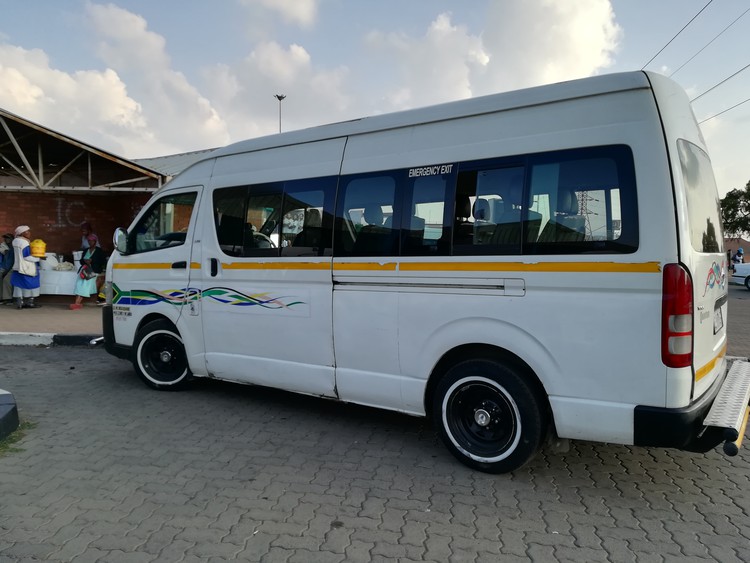
Six taxi routes in Soweto have been shut down after violence between two taxi associations. Photo: Zoe Postman
28 March 2019
Soweto taxi commuters have been left stranded as they wait for two rival taxi associations to reach an agreement that will end a spate of violence in the area.
The conflict between the two associations, Nancefield Dube West Taxi Association (NANDUWE) and Witwatersrand Taxi Association (WATA), is about overlapping operating licences and routes.
The violence during the conflict led Gauteng MEC of Roads and Transport Ismail Vadi to shut down six taxi routes in Soweto for three months.
Vadi said the conflict had claimed the lives of three WATA members in January 2019 and several attacks on minibus taxis had taken place since then. On the day of the announcement to close the taxi routes, six people had been shot and 10 cars damaged.
Vadi said the provincial government would not allow hit men to attack taxi leaders, commuters and taxi operators with impunity.
“Ordinary Soweto commuters and residents are being intimidated and harmed by this violence. We are clear that the law enforcement agencies will come down hard on those who perpetrate acts of violence in the taxi industry,” he said.
In July 2017, Vadi closed the same Soweto taxi ranks and routes for a month as a result of taxi violence between the same associations.
Buyile Moya lives in Orlando West, one of the hotspots of the taxi conflict, and uses taxis to get to and from work in Central Johannesburg every day. “We had to watch our backs. We didn’t know if we would get home safely every day,” she said.
Moya said the closure of the routes was good because it would force the taxi associations to “make up their minds what they want to do … Do they want to continue working or continue fighting?”
She said the surrounding communities were very scared of the violence at taxi ranks and something needed to be done. “But it’s bad because now we don’t have anything to take us to work. Have you seen the trains from Soweto? They are the worst. People hang out of the windows and sit on top of the trains. I can’t deal with that so taxis are all I have. I’ve used them my whole life,” said Moya.
Theo Malele, spokesperson for the National Taxi Alliance (NTA), which represents both associations, confirmed that the recent conflict was caused by overlapping of operating licences and routes and said “this issue has continued for far too long”.
He told GroundUp that WATA had been operating the route for a long time while NANDUWE had only recently obtained an operating licence for a similar route, causing conflict.
Malele said the NTA had managed to get the associations to cease fire and come to an agreement to put an end to the violence. He said the associations agreed to a joint committee to monitor operations daily and report to the NTA’s conflict resolution committee.
But by the time this plan was presented to Vadi he had already started the process to close down the operations.
“Once he looked into that plan, he realised that there were loopholes. He wanted us to stipulate exactly how the plan would work,” said Malele.
The two associations drafted an agreement on how the plan would be implemented. Only NANDUWE taxis were to pick up passengers at the taxi ranks and nearby pick-up points, and WATA-affiliated taxis were to begin their pickups further away.
But one of the two associations had refused to sign. “I won’t disclose which one,” said Malele.
A public apology by the taxi associations scheduled for 18 March was called off.
Melitah Madiba, spokesperson for Vadi, told GroundUp that the two associations needed to agree and submit their plan to stop the violence.
“This has a big impact on commuters and residents which is why we also met with the Soweto community last week Tuesday. The community was very clear, most of them urged us to keep the routes closed until the two associations came up with a detailed and clear plan on how they will stop further violence in their community,” Madiba said.
She said taxi routes would remain closed while Vadi considered all submissions.